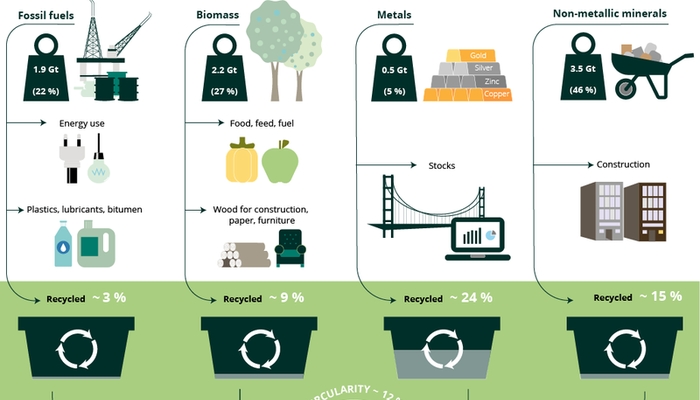The European Environment Agency (EEA) has said that our quest for uninterrupted economic growth “has detrimental effects on the natural environment and human health” because of “the Great Acceleration in human consumption”. Human civilisation is currently profoundly unsustainable, the authors concluded.

Not only does the EEA report reject traditional economic growth, but it also casts serious doubt on so-called ‘green growth’, which seeks to grow the economy while reducing the harmful environmental impact of economic activity.
“High-level policies… propose decoupling of economic growth and resource use as a solution,” the EEA describes, then dismisses these efforts because recent studies “find no evidence of absolute decoupling between growth and environmental degradation having taken place on a global scale”. The EEB concludes that that green growth cannot reduce resource use on anywhere near the scale required to deal with global environmental breakdown and to keep global warming below the target of 1.5°C above pre-industrial levels, the threshold established as part of the Paris Agreement.
The EEA document explores a number of alternative sustainable economic approaches, such as ecological economics and doughnut economics, which is a framework for sustainable development that does not overshoot the Earth’s natural limits. “Social, political and technological innovation is called for to translate alternative ideas about growth into new ways of living. Inspiration is also to be found in very old traditions,” said the EEA. “European heritage is much richer than material consumption. The fundamental values of the EU are human dignity, freedom, democracy, equality and the rule of law, and they cannot be reduced to or substituted by an increase in GDP.”

